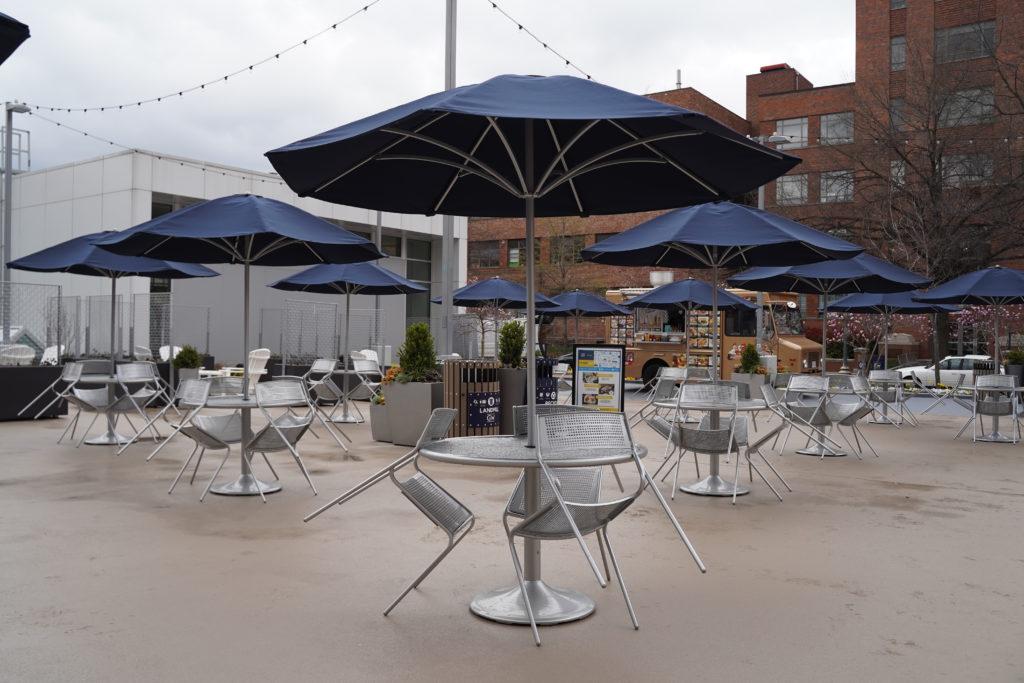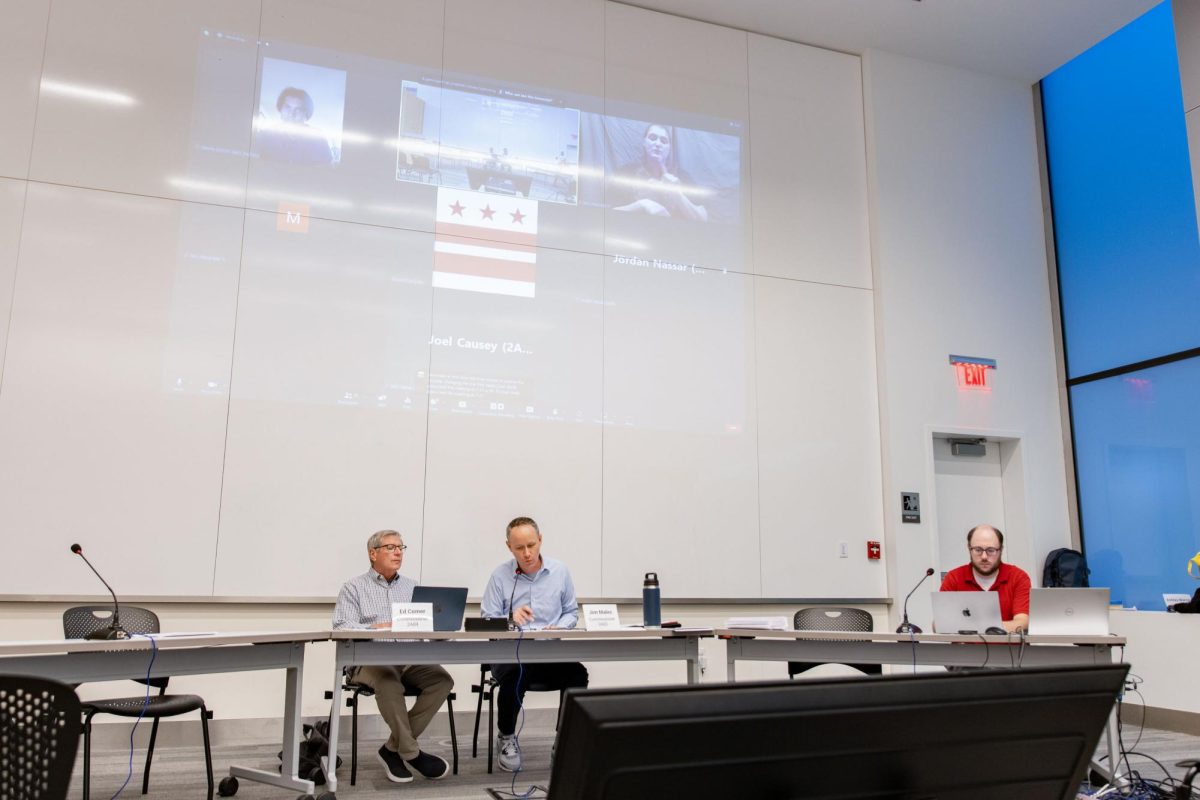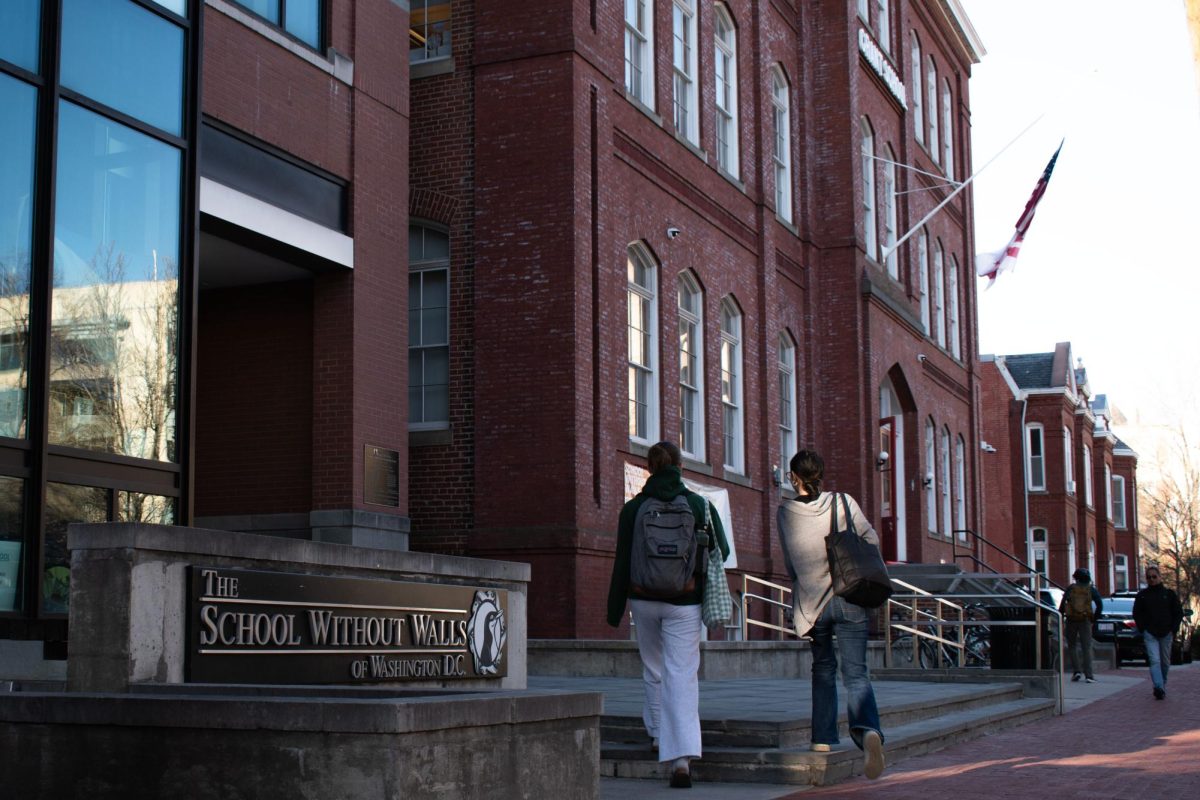TwentyTables and several popular food trucks reopened in Foggy Bottom late last month despite an unprecedented shortage of students on campus.
Alex Cohen, the founder and CEO of TwentyTables, said the company’s food truck partners moved from Potomac Square to the Lisner Auditorium loading dock on Aug. 26 to make themselves more accessible to students and attract more business for the program. Cohen said he plans to match staffing and scheduling with the size of fall business numbers, which have fallen during the first week of serving students back on campus.
Cohen said food trucks moved across campus to accommodate students’ living arrangements during the fall semester. Officials approved on-campus living for 500 students who returned to campus last month, filling Shenkman and South halls and District House, located just across the street from the hub of on-campus food trucks.
“We’re trying to bring that additional level of convenience to students as well as increase the appeal of the vendors themselves,” Cohen said.
He said even though the pandemic has damaged the food industry, food trucks are more flexible and mobile than other dining options, which helps them transport to busy areas.
The University announced its partnership with TwentyTables last year, launching a dining program that sells students $6.60 meal tickets for local food trucks and donates meals to local charities for each ticket sold. Cohen said food trucks returning to campus through TwentyTables will supply students with dining options more diverse and affordable than other nearby restaurants.
“What we’re hoping is that students will recognize both the school and TwentyTables’ efforts to bring this affordable food onto campus, and in that way we can get to bring the $6.60 meals to them, especially at this time when budget is that much more of a challenge,” Cohen said.
Since the pandemic reached D.C., some GWorld vendors have shut down or limited operations for the fall semester. Without business from students, faculty, staff and local workers, many food vendors near campus are struggling to stay afloat with a lack of funding and less food available to students.
Cohen said many of the food trucks affiliated with TwentyTables have been “resilient” and “creative” in their efforts to adapt to the pandemic’s conditions.
“In most instances, they’ve been able to weather the storm pretty well,” Cohen said.
Cohen said whether the food trucks stay on campus this fall depends on the customers, a clientele in smaller numbers with only a few hundred on-campus residents.
“If ultimately there’s just not sufficient students using the service in the space, then we’ll have to reduce and scale it back to whatever levels necessary,” Cohen said.
SoulTarian, a vegan and pescatarian street food truck, has been back on campus since Aug. 28, chef and founder Christopher Arnold said.
Arnold said the relatively small number of students and faculty on campus has tested business sustainability. He said the truck still serves local employees, but the majority of business comes from residential students.
“Our loyal students are still back on campus,” Arnold said. “They always come and see me, so I appreciate that. But that’s a challenge because there’s not that many people around.”
Arnold said he chose to return to campus when he heard the University had welcomed back a few hundred students, many of whom sent him messages that stressed how much they missed his business.
“A lot of students were already on my Instagram account sending me messages, telling me, ‘Hey we miss you. We can’t wait for you to come back to campus,’ so I was like ‘OK,’” Arnold said.
Arnold said despite the continuous student support, he’s gone from seeing 40 to 60 daily customers at lunch down to 20 to 25 so far this fall. He said SoulTarian has been utilizing touch-free payment methods, including Google Pay and Apple Pay, to keep business transactions safe during the pandemic.
Giuseppe Lanzone, the co-founder and CEO of the food truck Peruvian Brothers, said his truck is back on campus at least once a week, but sales have been “lower than usual” because of the limited number of nearby students.
Lanzone said the truck has adapted to customer dropoff by cooking less food to avoid wasting leftovers at the end of the day. He said Peruvian Brothers has also kept hand sanitizer by the window and followed guidelines outlined by the Centers for Disease Control and Prevention to prevent the spread of COVID-19.
He added that the number of customers he’s received on campus during the pandemic has dropped by half compared to previous years, now receiving between 40 to 80 customers per day.
“The majority of people are still working from home,” Lanzone said. “There’s the fear of people going outside, but I think little by little people are starting to come out more and more. And they’ve started to feel a little more comfortable with being outside and eating out of a restaurant or food truck.”







